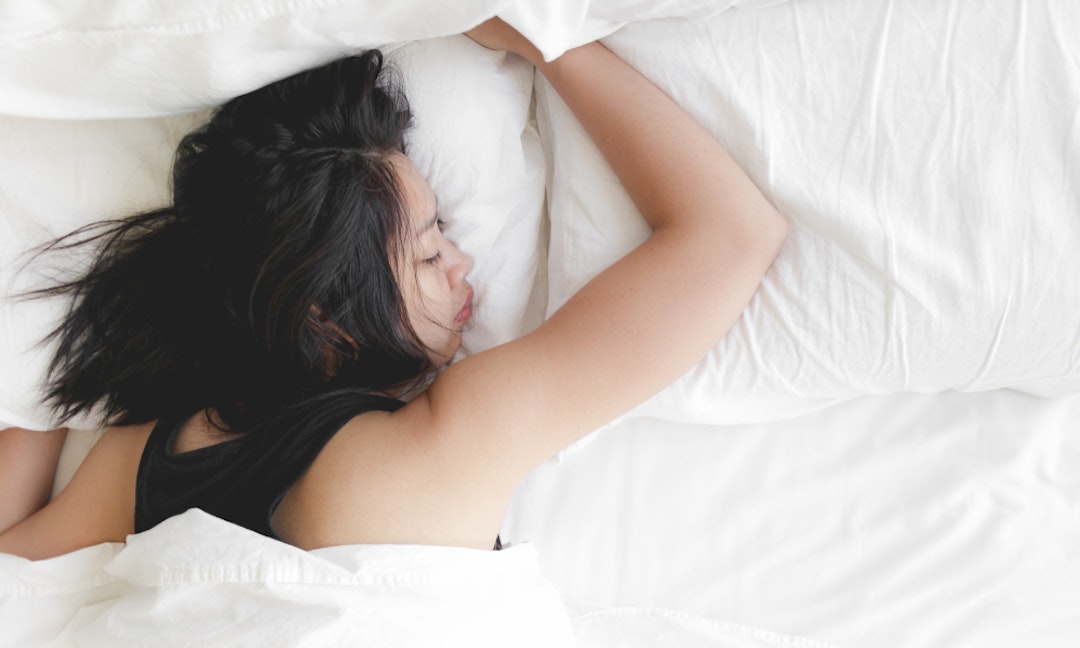Table of Contents
Do you frequently feel as though you have slept for a very long period, yet no matter how much sleep you get, you are still tired? Although many people start to catch up on lost sleep on weekends and even sleep for longer than 10 hours at a time during the week when they are at work, they never seem to feel fully rested. You might not get enough “deep sleep” time if you find yourself in such a position.
Both enough rest and excellent sleep quality are not correlated with sleep duration. In actuality, environmental and genetic variables influence how much sleep a person needs. Everyone’s sleep cycle distribution is unique, and so is the amount of time they need to sleep. Consequently, getting a lot of sleep is not always a sign of getting enough rest.
A crucial element is whether or not deep sleep is attained when sleeping.
Deep sleep: what is it?
The sleep cycle includes periods of deep slumber. The body and brain are currently in a condition of low activity. Our respiration and pulse rate will slow down, and our brain waves will change to slow waves. The body will focus on producing growth hormones, healing damaged tissues and cells, and promoting the development of muscles and bones.
Each sleep cycle may be broken down into two primary categories: rapid eye movement and non-rapid eye movement. A whole sleep cycle lasts roughly 90 minutes (rapid eye movement).
The first two phases of non-rapid eye movement will not be discussed here. I’d want to talk specifically about the third stage of deep sleep.
Normal sleep progression gradually moves from the first stage of non-rapid eye movement, or deep sleep, to the third stage of non-rapid eye movement. The brain wave enters the (Delta) wave at this point, around 1-3 times per second, and it practically ceases when the human body enters the profound sleep stage. All bodily processes, including respiration, pulse, and body temperature, are now at their lowest points. The body is currently in a fundamental condition of simultaneously slowing down and lowering, making it difficult to wake up. The body and mind may both relax and rejuvenate at the same time during this period.
Your response will be quite delayed if you are awakened when you are in a deep slumber. If you awaken during this time, it’s advisable to take your time getting out of bed before engaging in other tasks that call for focus. When it comes to the level of sleep, the body can experience total relaxation via long stretches of deep sleep devoid of dreams, even enabling the body and mind to cure itself. A person must first make up for this deep sleep if they go for an extended period without getting any.
You will reach the rapid eye movement phase, which is similar to the conclusion of the sleep cycle, in the last stage of sleep. The brain waves suggest that you are not now asleep and are soon to awaken, but that you are not truly awake at this time. The body will get weaker as a result of the weaker muscle tone and increased oxygen demand in the brain, respiration, and pulse. We frequently state that if you are woken during the rapid eye movement time, you will typically feel emotionally affected. Get up furious. Dreams experienced around this time are often bright, rich, and simple to recall. As a result, scientists have written extensively about REM sleep and have also come up with several meanings and interpretations for dreams.
However, other stages of sleep—aside from the dreamless deep sleep period—will also involve dreaming, albeit it is simpler for us to recall those from the rapid eye movement stage. Only during the dreamless deep sleep stage can we truly unwind. Normal individuals require between 4 and 6 sleep cycles each day, or 6 and 9 hours of sleep. The levels of the sleep process are extensive for those who sleep normally. It gradually gets lighter after appropriate rest. The deep sleep time will gradually shorten as there are more cycles, while the rapid eye movement period will get longer and longer.
According to the body’s normal condition, after 3 to 4 hours of sleep, or after 2 full cycles of sleep, the sleep will naturally become lighter, and individuals often wake up without much difficulty. If necessary, you could get up. It’s okay to use the restroom, get some water, or complete a small amount of work. Don’t switch on the light if you want to sleep longer; simply unwind and do so!
What advantages does deep sleep provide for the human body?
Brain metabolism and blood flow decrease by around 75% during deep sleep. The term “superconscious state,” which is also used to describe a condition attained by the use of medications or meditation, refers to deep sleep itself.
It is the easiest and most basic state of awareness. It will significantly rejuvenate and restore the brain’s nerve cells. The benefits on learning and cognition are considerable. Sometimes during deep sleep, the slow wave state transitions into a short-term As with fixing the memory in the mind and strengthening the circuit of memory and learning, the rapid brain waves can assist us in integrating short-term memory into long-term memory at this moment.
Understanding this is crucial since we Asians promote the idea of working hard at studying late at night. Even the tragic tale of the hanging beams is well-known. Many people decide to stay up late to study, yet this only constitutes half of the work—and may not even result in decent scores!
On the contrary, the learning impact improves with ease. Go get some rest when it’s time for bed. Additionally, during deep sleep, the sympathetic nerve function will also diminish, primarily due to the parasympathetic influence. The sympathetic and parasympathetic nervous systems will be balanced at this point. This has a significant impact on our ability to completely relax both our body and mind. This period can encourage bone development, tissue healing, immune enhancement, and accelerated absorption and emission metabolism. Consequently, some sleep will have restorative power. If a person simply has minor cold symptoms, they will often go away after a restful night.
How much deep sleep is required?
It differs typically from person to person. Adults only use 15 to 25 percent of their nightly deep sleep time. If you sleep for eight hours, the deep sleep period lasts between 72 to 120 minutes, or roughly one to two hours. Growing adolescents or young adults may require deeper sleep for longer periods of time (20–25%), and the harder it will be to achieve deep sleep the older they get.
As a result, increasing the length of sleep does not result in more time spent in deep sleep. If you master the stage of deep sleep, even if you only sleep for 4 or 5 hours, you will wake up the next day with plenty of energy. If, however, you spend the whole night in the stage of light sleep, even if you sleep for 8 or 9 hours, you will still feel groggy and as though you haven’t woken up.
Therefore, it is not true that deep sleep lasts longer the longer you sleep.
Deep sleep, however, cannot be observed, felt, or touched. It can only be assessed with EEG to identify brain waves. The most popular sleep detection gadgets and applications available only measure blood oxygen levels, heart rate, and activity during sleep to estimate sleep state and cycle; they are unable to accurately reflect actual sleep status.
The simplest method to assess is to sense how your body feels when you first wake up. It is quite likely that you did not get enough deep sleep if you feel exhausted after waking up, feel like you haven’t slept enough, or are really exhausted.
Here are five strategies to lengthen our deep sleep cycles:
1. Increase your exposure to sunshine throughout the day to aid in melatonin release at night.
2. Two hours before night, engage in light exercise; avoid vigorous activity. It is preferable to stop exercising before 8 o’clock if you want to go to bed at 10 o’clock, for instance.
3. Dim the room’s lights an hour or two before night, then turn them off when it’s time to sleep.
4. Create a nighttime routine that includes stretching or breathing exercises to help your muscles gradually relax and to tell your brain to get ready for sleep.
5. To help the body adjust to the sleep cycle, establish a definite timetable. Try to fix the time you go to bed and wake up as much as you can. If your sleep schedule needs to be adjusted, don’t go over an hour; doing so will make it more difficult and exhausting to get back on track.
The deep sleep stage is a crucial golden moment for the body! Grab hold of your precious sleep time since it provides the body with opportunity for organizing and restoration. Treat sleep seriously.
This article is reprinted with permission from Do you frequently feel as though you have slept for a very long period, yet no matter how much sleep you get, you are still tired? Although many people start to catch up on lost sleep on weekends and even sleep for longer than 10 hours at a time during the week when they are at work, they never seem to feel fully rested. You might not get enough “deep sleep” time if you find yourself in such a position.
Both enough rest and excellent sleep quality are not correlated with sleep duration. In actuality, environmental and genetic variables influence how much sleep a person needs. Everyone’s sleep cycle distribution is unique, and so is the amount of time they need to sleep. Consequently, getting a lot of sleep is not always a sign of getting enough rest.
A crucial element is whether or not deep sleep is attained when sleeping.




